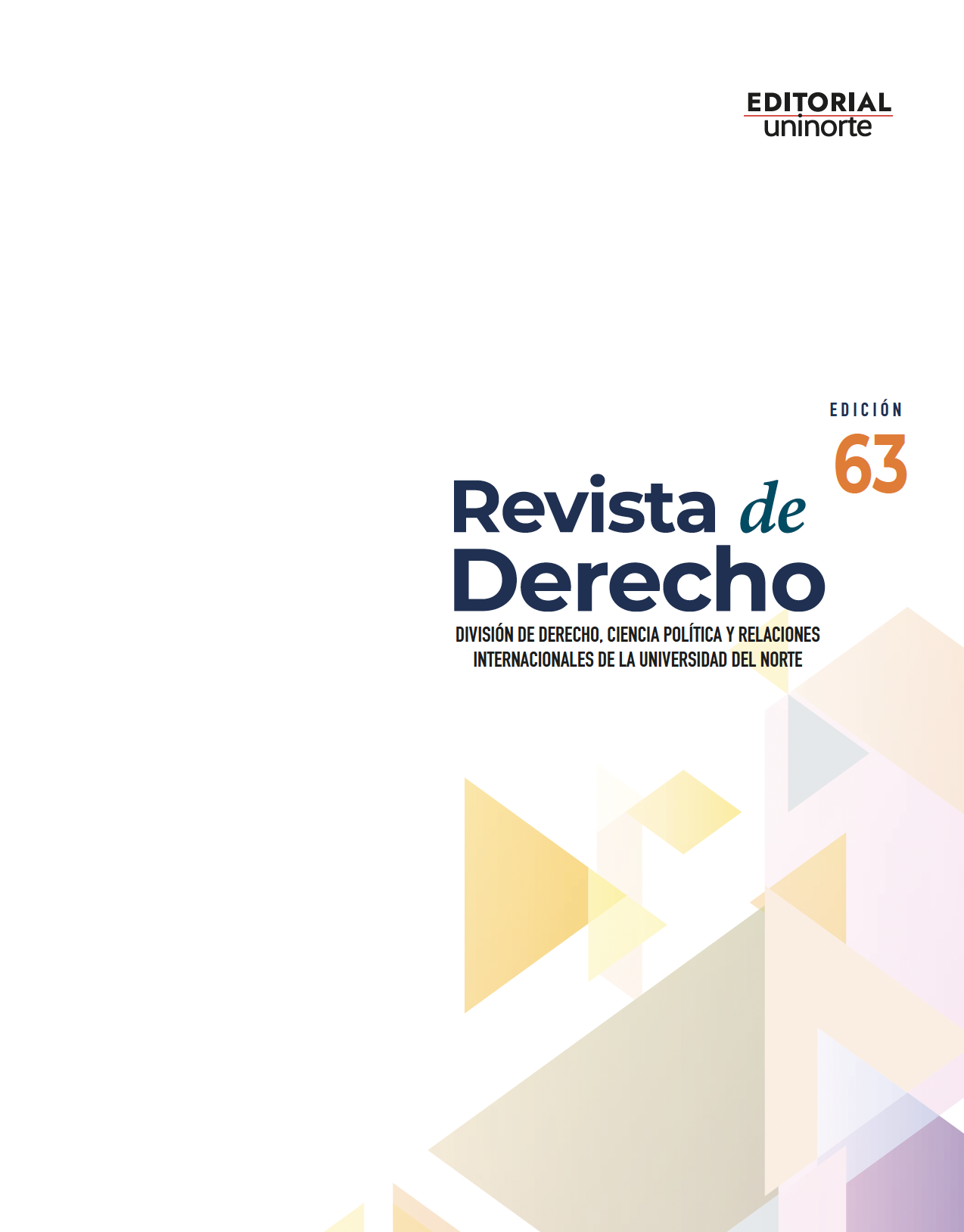Prisión Perpetua y Pena de Muerte en Colombia: ¿Reforma o Sustitución Constitucional?
Life Imprisonment and Death Penalty in Colombia: Constitutional Reform or Substitution?
Keywords:
Pena de Muerte, Prisión Perpetua, Reforma Constitucional, Sustitución Constitucional, Bloque de ConstitucionalidadAbstract
Life imprisonment and the death penalty have a dynamic history in Colombia's constitution. Despite being explicitly prohibited by the 1991 Political Constitution, various sectors in the country have attempted to reintroduce them, arguing for their importance in protecting fundamental legal interests. This article analyzes whether the reintroduction of the death penalty and life imprisonment would constitute a constitutional reform or substitution. The pursuit of reimplementing these punitive measures has been the result of different social and political paradigm shifts in Colombian society. The possible reintroduction of these penalties raises the question of whether it would merely modify the Constitution or entail its substitution. This situation reflects a conflict between the national legislature and the High Courts. Through documentary research, examining relevant legal sources and jurisprudence, it is concluded that reintroducing these penalties would violate the fundamental principles of the 1991 Constitution and undermine the pillars of law, due process, and the presumption of innocence—essential elements of a Social and Democratic Rule of Law. Consequently, it would constitute a substitution of the 1991 Constitution. In summary, this article highlights the historical context, examines reintroduction initiatives, and concludes that reintroducing the death penalty and life imprisonment would violate constitutional principles and weaken the foundations of the Rule of Law, thus constituting a substitution of the 1991 Constitution.
References
Aguilera, M. (1995). La pena de muerte: una propuesta permanente. Análisis Político, (26), 3–17. https://revistas.unal.edu.co/index.php/anpol/article/view/76032
Arango O., M. (2004). El Bloque de constitucionalidad en la jurisprudencia de la Corte Constitucional colombiana. Precedente, 80 - 102.
Banco Mundial. (2018). Esperanza de vida al nacer, total (años) [en línea]. https://datos.bancomundial.org/indicator/SP.DYN.LE00.IN
Bejarano, J.A. (2008). ¿El fin justifica los miedos? Perspectiva genealógica de los debates sobre la pena de muerte en Colombia. Desafíos, 213 - 241.
Cáceres González, E. (2019). Prisión perpetua en Colombia. Análisis de las iniciativas legislativas para su autorización, y de los argumentos «racionales» para su incorporación en el ordenamiento colombiano. Nuevo Foro Penal, 15(93). https://doi.org/10.17230/nfp.15.93.4
Caso Álvarez vs. Argentina, Sentencia sobre las Excepciones Preliminares, Fondo y Reparaciones 1 (2023).
Caso Boyce y otros vs. Barbados (2007). https://www.corteidh.or.cr/docs/casos/articulos/seriec_169_esp.pdf
Caso Mendoza y Otros vs. Argentina (2013). Sentencia sobre las Excepciones Preliminares, Fondo y Reparaciones.
Colón-Ríos, J. (2021). El poder de una Asamblea Constituyente: reflexiones acerca de la Constitución de 1991 y su artículo 376. Revista Derecho del Estado, 50. https://doi.org/10.18601/01229893.n50.04
Constitución Política de Colombia. (1991). Artículo 125.
Constitución Política de Colombia. (1991). Artículos 1-3.
Downloads
Published
Issue
Section
License
Los artículos publicados en la Revista de Derecho y todo su contenido se encuentran bajo licencia Creative Commons CC BY. Creative Commons Attribution 3.0.








